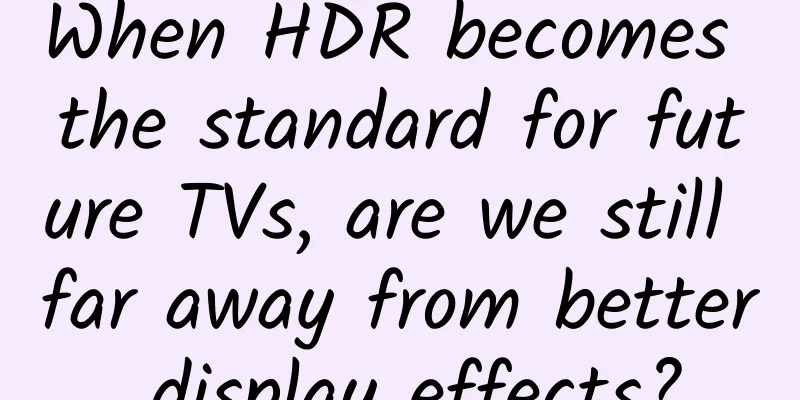Will smart homes be a passing fad?

|
When the four words "smart home" come out, it seems that we have found a new field for the development of science and technology. After the era of PC and smart mobile devices, the life scenes in the science fiction movies of the past seem to be getting closer and closer to our reality. But it is undeniable that, apart from smartphones and tablets, most of the subsequent smart products seem to have been "possessed". Smart wearable devices, smart watches, and seemingly high-end technological products have all been "rejected" in the market, or have been sluggish, or have become "accessories" of mainstream smart products. Judging from the current trend, smart home, which the industry has always believed to be the trend of the future, seems unable to escape this "vicious circle". It is time to reflect on where to go in the future. What is intelligence? If a home is to be called smart, then we naturally have to understand what it means to be smart. Although smartphones have been popular for several years since the first generation of iPhone and the Android pioneer HTC Dream G1, when it comes to intelligence, it is actually not that complicated. We love smartphones because whenever we turn the phone sideways, the content on the screen will be displayed horizontally following our posture, as if resonating with our hearts. This is how some mobile phone review organizations view smartphones. If we analyze the essence, our concept of intelligence is roughly the same. Although the performance of smartphones is becoming more and more advanced, the only changes are faster running speeds, the ability to handle multiple tasks at the same time or the ability to allow users to experience more exciting large-scale games. It was only after Steve Jobs brought capacitive touch screens to the market and the application of various sensor technologies that we can truly feel the changes in the "intelligence" of mobile phone products. Looking at the smart home products on the market today, it seems that manufacturers have taken this field too lightly. Whether it is smart TVs, smart watches or high-tech smart glasses, all of these things are copies of smartphones in another form. Once equipped with processors and systems, they are transformed into smart home products. However, after stacking these hardware, most manufacturers have not been able to provide users with an acceptable interface interaction design. Powerful hardware will inevitably lead to more functions, but if smart home products do not give consumers the same sense of dependence as smartphones, then what is the advantage of intelligence? What is home furnishing? It has to be said that the fact that smart homes rarely make the headlines is closely related to the fact that their products are not mainstream. Mobile phones are everyone's personal devices, and the age range of users ranges from 8 to 80 years old. The followers of tablet computers are either technology geeks or audio and video enthusiasts, which account for a large part of the population using electronic products. On the other hand, in the eyes of most people, the word "home" is equated with "mom and dad" and "starting a family." However, the importance of smart home products is taken very seriously by industry insiders. Indeed, the word "home" implies a certain scope of application. Within this scope, the difference in whether the smart device is portable or not is no longer obvious. In addition, the current research and development ideas of smart homes are all in response to other smart devices, which seems very promising. Of course, this is from the perspective of the industry rather than the user. Family members have different understandings of electronic devices. A son who can flash a phone may not have a mother who can use an iPad. For the elderly who cannot even send text messages, it is unrealistic to ask them to accept current smart home devices. From the product perspective, although smart routers, as the most basic members of smart homes, have begun to carry hard drives, for the vast majority of consumers, they would rather endure "fake broadband" and use free cloud services than spend a lot of money to build what technology enthusiasts call NAS. Such products are inevitably out of touch with the market. Therefore, the primary focus of smart homes is homes. Providing convenience for daily life and making traditional home products just right is their most basic obligation. However, various manufacturers have mostly placed the core of their products on intelligence, which makes us evaluate various smart home products almost through the glasses of "smartphones". This is obviously not the path that smart homes should take. Where is the turning point for smart home? Looking at the development of modern intelligent technology, if Steve Jobs' iPhone had not shown people that touch-screen phones can also be fast and easy to use, the devices we have in our hands might still be densely packed with keyboards; if it were not for the iPad that allowed us to hold a computer in our hands, Microsoft might not have rushed to launch Surface and the "weird" Windows 8. Various events have shown that changing the face of an industry requires a strong leader. As for smart homes, Google has officially brought Android to TV screens, and Apple's iOS is going to be deployed in various smart fields such as home, car, and wearables. Even the popular MIUI in China is speculated to focus on smart home design in the next version of the system. These measures are definitely more powerful than the actions of several hardware equipment manufacturers or traditional home appliance manufacturers in transition. Will smart home be a flash in the pan? Perhaps it is too early to predict the future of an industry that has only just begun to develop. However, the image of smart home products has always been worrying. After industry giants become interested in this new cheese, perhaps the smart life that people expect will not be far away from us. As a winner of Toutiao's Qingyun Plan and Baijiahao's Bai+ Plan, the 2019 Baidu Digital Author of the Year, the Baijiahao's Most Popular Author in the Technology Field, the 2019 Sogou Technology and Culture Author, and the 2021 Baijiahao Quarterly Influential Creator, he has won many awards, including the 2013 Sohu Best Industry Media Person, the 2015 China New Media Entrepreneurship Competition Beijing Third Place, the 2015 Guangmang Experience Award, the 2015 China New Media Entrepreneurship Competition Finals Third Place, and the 2018 Baidu Dynamic Annual Powerful Celebrity. |
<<: After the box was “banned”, the living room fell into the hands of the license holder
>>: NetQin hit again: PwC employee leaks secrets on Weibo
Recommend
Kuaishou's Kuaikandian platform has a daily revenue of 10+ single numbers. The studio can directly operate in batches if the transfer is not illegal.
Kuaishou's Kuaikandian platform has a daily r...
How much does it cost to hire someone to make a WeChat mini program?
Q: How much does it cost to hire someone to make ...
Why can’t Douban’s top influencers get advertising on Weibo?
As a blogger, your own content is like a brand’s ...
Audiobook "Return to the Ming Dynasty to Become a Prince" All 750 episodes of audio collection
By accident, Zheng Shaopeng, the ninth generation ...
Who is the mysterious boss who exploits the “working people” in “Chinese Tales”?
Earlier this year, the animated series "Chin...
Solid info! How to write a good competitive product operation analysis report?
There are many articles on the Internet about wri...
The logic of the young LeTV TV super TV: products and users are together
LeTV TV's "919 Music Festival" prom...
Build a secure app! iOS security series: HTTPS advanced
[[149556]] This article is divided into the follo...
How should tool apps operate?
Two days ago, a reader gave me a trial of their t...
Cherish entrepreneurship and stay away from entrepreneurial streets
[[132340]] In fact, when I was invited to join En...
Maybe you don’t know yet, the App Store has an accelerated application review channel
The review speed of the App Store has always been...
"Buy one get one free": a clichéd promotional tactic that works time and again to attract customers
Is the “buy one get one free” promotion in retail...
A review of the top ten crisis public relations events in 2020
2020 has been a year of ups and downs, and the sa...
How exciting is the work of a forensic doctor? Besides corpses, what else do you study?
Expert of this article: Zhang Yinming, PhD in For...
A 10,000-word article sorting out the product strategy of TikTok social
On Douyin, you can watch short videos for enterta...









